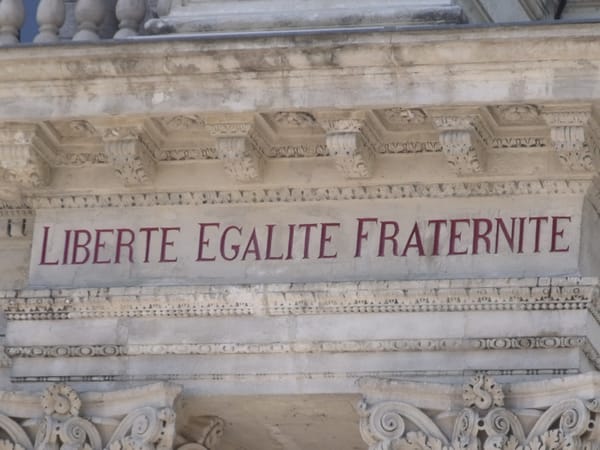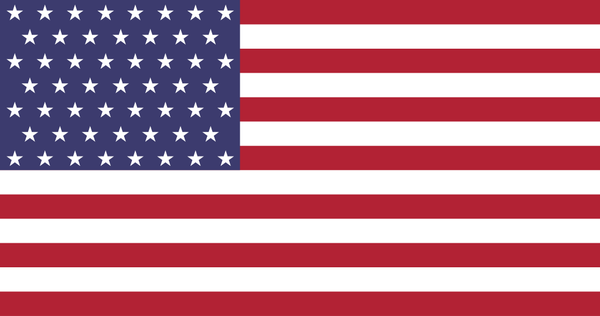The Liberal Centrist Trap
Identity politics is vital for liberalism precisely because oppression is never neutral, color-blind, or universal.

Right-wing populists and the advocates of the identity synthesis see each other as mortal enemies. In truth, each is the yin to the other’s yang. The best way to beat one is to oppose the other—and that’s why everyone who cares about the survival of free societies should vow to fight both.
Classrooms in America are once again segregated, not because of racism but because racial minorities deserve spaces free of whiteness where they “can be their authentic selves.” Diversity, Equity, and Inclusion (DEI) programs have fully colonized corporate spaces, government offices, and university administrations, enforcing strict controls on speech on pain of reeducation or outright termination. This “consequence culture” aims to protect minorities from cultural appropriation, microaggressions, and the tyranny of white, cis male concepts like merit and political neutrality. Progressive segregation simply acknowledges what standpoint epistemology has taught us: members of different identity groups cannot begin to understand one another and thus shouldn’t try; instead the member of the more privileged group should defer to the lived experience of the member of the more oppressed group.
Meanwhile incomes and comprehensive well-being have begun secular declines as redistributive programs have forsaken the interests of the least well off individuals in favor of group equity. Politically, the anti-whiteness of the identity revolution has turbo-charged white identity politics, as overt racism and white nationalism have been normalized to a degree not seen since the Civil Rights Era. Zero-sum conflict prevails as the white male elite defends itself and as different minority groups scuffle over who is the most oppressed and thus deserving of a greater portion of a shriveling husk of an erstwhile cornucopia.
This bleak vision of America in the grip of wokeness—what he calls the “identity synthesis” and others have called identity politics—haunts Yascha Mounk and animates his most recent book, The Identity Trap: A Story of Ideas and Power in Our Time. The founding editor of Persuasion explains the philosophical origins of wokeness, illustrates its influence on American culture and politics, and offers a defense of liberalism as an antidote to the woke malignancy.
The nightmare above truly is illiberal. If identity politics led inexorably to this bizarro dimension then it would be incumbent on liberals and all freedom-lovers to oppose it, root and branch. Yet despite his apparently broad reading of the identity politics literature and his occasional piercing anecdote, Mounk fails to persuade a critical liberal reader that identity politics must lead to his extreme conclusions, nor that the vices of identity politics outweigh its virtues, and certainly not that the key to defeating rightwing populism lies in vanquishing identity politics.
The Identity Synthesis
Mounk distills the “identity synthesis” to three principles.
1. The key to understanding the world is to examine it through the prism of group identities like race, gender, and sexual orientation.
2. Supposedly universal values and neutral rules merely serve to obscure the ways in which privileged groups dominate those that are marginalized.
3. To build a just world, we must adopt norms and laws that explicitly make the way the state treats each citizen—and how citizens treat each other—depend on the identity group to which they belong.
“Identity synthesis” is just a new term for the conservative or centrist interpretation of identity politics, which is the term I will tend to use. The first problem jumps out even from this summary, and that is the totalizing of the concepts in question. Mounk declares identity politics is seen as the key to understanding, rather than, say, one essential prism among others. Do identity politics practitioners claim universal values and neutral rules “merely” obscure group domination or that they often do and it’s a dynamic we should prepare for?
This totalizing tendency pervades the book. Michel Foucault—the fountainhead in Mounk’s genealogy—saw all institutions and social relations as fundamentally reducible to power relations. Standpoint epistemology—a feminist innovation that explores how the ways we perceive and understand the world depend on our social positions—implies thoroughgoing mutual unintelligibility, that we can neither learn anything from nor communicate anything meaningful to those in other identity groups. Critical race theory (CRT), an academic movement which centers race as a fulcrum for understanding politics and the law, implies that a person’s race is the single most important thing about them. The move to advance racial and gender equity—equality at the level of identity groups—means we no longer care about equality at the individual scale, and certainly not about equality of treatment or measures of outcomes.
But this is all deeply silly. One can appreciate how Foucault perceived power in every social relation without believing that power is the only variable. Our social locations can shape the contours of our understanding without implying anything like mutual unintelligibility. Indeed such an interpretation of standpoint epistemology is perverse and peculiar. It certainly flies in the face of feminist consciousness raising, which depends on spreading awareness of how oppression manifests under patriarchy along with strategies to oppose it. The indisputable fact that race has profoundly shaped American history and even today powerfully influences an individual’s life prospects hardly implies that race is the only or even the most important aspect of an individual’s life. And of course the idea that those who advance racial or gender equity have thereby stopped caring about economic deprivation or inequality is absurd.
Mounk knows all this. Indeed one admirable feature of The Identity Trap is the author’s engagement with those he (dubiously) considers pioneers of wokeness: Foucault, the postcolonial theorists Edward Said and Gayatri Spivak, and the founding architects of CRT. Mounk argues that all these figures would disavow the “identity synthesis” and that there are nuanced interpretations of their ideas that liberals can appreciate. Foucault would remind his readers that identity politics will merely reconfigure power structures while Said admonished that “marginality and homelessness are not, in my opinion, to be gloried in; they are to be brought to an end,” which Mounk curiously takes to be a statement against identity politics. Mounk relates how CRT scholar Kimberlé Crenshaw often feels alienated from “intersectionality” (a term she coined) as it’s used in popular discourse, implying leftist misuses. She was likelier bemoaning malicious misrepresentations by the right. Mounk interviews feminist scholar Rachel Fraser about standpoint epistemology and acknowledges the core legitimacy—even usefulness—of the concept.
Mounk thus recognizes sophisticated versions of virtually every element of his “identity synthesis,” from Foucault to Said, standpoint theory to intersectionality. What then is the purpose of writing an entire book about the dangers of identity politics if its fundamentals are sound? Mounk insinuates that the reasonable application of identity politics is rare, and the implementation in the everyday world, especially on university campuses and in corporate DEI programs, is increasingly illiberal.
Mounk is at his strongest when dealing with shocking anecdata. It really does seem illiberal to—as in one of his first anecdotes—ensure that the little Black child always goes with the Black public school teacher. I wholeheartedly agree that cultural appropriation is a dicey concept, and his example of an “ethnically ambiguous” (but half-Chinese) student being admonished for recreating a Chinese work of art for a museum project is reprehensible. Cringy conversations on college campuses is a renewable resource.
Yet many of his carefully curated anecdotes are less alarming on close inspection. It doesn’t seem so illiberal for a university to reserve one floor of one residence hall for Black students on an opt-in basis. Even Mounk’s workhorse example, returned to repeatedly, falls short of ominous. Mounk is appalled that the Center for Disease Control would factor in social justice when determining how to roll out the first Covid vaccines. The initial recommendation was to introduce the second phase (after essential medical personnel) to Essential Workers, narrowly chosen over Adults Aged 65 and Over, even though the model suggested more lives would be saved by favoring adults over 65. Weighing against the extra lives were a greater vaccine uptake, a faster reduction of virus transmission, a consequent “multiplier effect” to more speedily return to normal social functioning, and—to Mounk’s horror—racial, ethnic, and class considerations. Access to life-saving medicine should not depend on skin color, Mounk piously intones.
Maybe Mounk is right. It’s a thorny public health ethics problem. The ethics are just more complicated than Mounk’s colorblind approach admits. On his logic, any positive number of lives saved should categorically outweigh any consideration of disparate racial impact. The thought experiments write themselves: if marginally more lives overall would be saved by giving (by some proxy) white people the vaccine first even though a disproportionate number of racial minorities would perish, would that be the appropriate course of action? What of the social dynamics and the magnification of various wealth and well-being gaps that would ensue? As it happens, the increased burden on women due to juggling domestic and remunerated labor during the lockdowns was a major concern. But it’s unclear whether Mounk “sees gender” in pandemic response policy.
Pious indignation bears much of the argumentative load in The Identity Trap. There’s a lengthy stretch lamenting the proliferation of popular feminist websites like feministing.com and everydayfeminism.com. A major thrust against CRT is that it denies racial progress generally and allegedly asserts the impossibility of racial progress except where it converges with white interests. Mounk quotes founding CRT scholar Derek Bell, for whom even successful efforts “will produce no more than temporary ‘peaks of progress,’ short-lived victories that slide into irrelevance as racial patterns adapt in ways that maintain white dominance.” Away from the Ivory Tower, Mounk laments that uses of terms like “racist” and “systemic racism” in major newspapers increased by multiples during the 2010s, as if such shifts can only mean we are getting oversensitive about racism, and that it is irrational to do so in light of our racial progress.
But shock at the belief that racism continues to be a defining institutional feature of American life is a poor argument against CRT and racial justice activism generally. Mounk fails to really countenance the possibility that CRT is correct or useful. The existence of a Black middle class or survey results showing that Americans largely no longer think that interracial marriage should be illegal don’t speak to the charges of CRT at all. Mass incarceration is racialized and the Black-white racial wealth gap doggedly persists. The election of the first Black president has to be understood alongside what followed: the swelling of white nationalist activity and violence and the election of an undeniably racist president riding a popular wave of white racial resentment. Whether or not there has been net racial progress does seem to “slide into irrelevance” as the backlash against the perceived decline of white male status forces us to drop everything else and fight like hell just to keep democracy on life support.
This cuts to the heart of why Mounk’s intellectual “origins of woke” thesis is not only dubious—more plausible genealogies start from the Romantic era nationalist movements and Hegelian recognition—but largely irrelevant. Racial justice, feminist activism, and LGBTQ liberation do not arise from Foucault or even CRT. They spring from the natural human impulse to seek freedom from inequality and oppression. People seeking to understand and overcome their own oppression will use what tools are available in the existing ideological milieu, as well as invent their own concepts and practices. Just as Frederick Douglass was an early exponent of standpoint epistemology, Sojourner Truth expressed an early version of intersectionality. And Martin Luther King Jr articulated the concept and the danger of the “white moderate” (MLK’s color-sighted phrase for the reactionary centrists of his time, more concerned with reducing tension than achieving justice). The many facets of identity politics find expression independently from any single genealogy, pull from multiple traditions at once, and often look nothing like the sampled source material. Mounk himself recognizes this when he rightly downplays Marx in his "identity synthesis." Abolition and suffrage movements long preceded Foucault, and there is little reason to think Mounk’s version of identity-blind liberalism is the rightful heir of these traditions.
Liberal identity politics
Mounk positions identity politics as fundamentally in opposition to liberalism and liberal values. Often this comes from the mouths the accused, as when CRT scholars claim “complacent, backsliding liberals represented the principal impediment to racial progress” and “liberal democracy and racial subordination go hand in hand,” or when they reject objectivity, meritocracy, and color-blindness. Some of this is simple calumny. The purpose of skepticism toward objectivity and meritocracy is—obviously—to strengthen rather than erode democracy. Distrust of liberals comes not from an intention to promote illiberalism but from disappointment with the long history of liberal accommodation with racial, gender, and other hierarchies.
Despite the tendency for many thinkers Mounk would place within the “identity synthesis” to reject the liberal moniker and for many centrist liberals to condemn the illiberalism of identity politics, there is no fundamental opposition between identity politics and philosophical liberalism. Indeed, for liberalism to approach its ambitions of universal freedom, liberals must embrace identity politics.
Political scientist Jacob T. Levy, noting the political energy for freedom the Black Lives Matter movement provided, argues that identity politics isn’t about “being on some group’s side” but about “fighting for political justice by drawing on the commitment that arises out of targeted injustice,” and leveraging the intellectual resources to recognize and diagnose oppression. Identity politics is vital for liberalism precisely because oppression is never neutral, color-blind, or universal.
Journalist Ian Dunt, author of How To Be a Liberal, offers a refreshing alternative for how liberals can think about identity politics. It can be a source of learning about freedom itself. Dunt fruitfully engages with identity politics from the Black feminist Combahee River Collective to queer and gender studies. Dunt’s observations of the liberal potential of queer theory are moving. Questioning the nature of terms like heterosexual and homosexual and presenting human sexuality as fluid and evolving opened up new frontiers of freedom.
How many people silently suffered, too afraid to confess their feelings, under the terrible weight of that false choice? And now here was a theory that was offering liberals a solution. This was a whole new arena of human flourishing through free choices, without the anchored-down simplifications of old brute categories. It was rich, fertile terrain for liberalism, which it proceeded to almost completely ignore.
Like countless liberal centrists before him, Mounk accuses identity politics of zero-sum thinking, of retreating from universalism, and of corroding solidarity. As Black feminists have articulated since long before Crenshaw coined “intersectionality,” the entire purpose of reorienting ethics and politics from “margin to center”—from the most oppressed of various kinds inward to the privileged—is not to invert status hierarchies but to ensure universal well-being. We are more likely to achieve universal freedom by focusing on securing freedom for the most unfree first. Identity politics doesn’t pit groups against each other in an all-against-all mélée but cultivates solidarity across difference.
Mounk treats society as essentially static. Social justice activism perturbs liberal society from its natural tendency to gradually bend along an arc of progress. Identity politics disrupts the trend toward justice by introducing illiberal practices into American society and provokes a rightwing reaction. This is what Mounk means by describing identity politics as the yin to the yang of right-wing authoritarianism. Right-wing authoritarians need the identity left to justify their own antiliberal ambitions. If the left would just abjure identity politics it would deprive fascism of oxygen.
Liberal centrist reaction
This is an illusion. The authoritarian right only appears dormant when the dominance of traditional hierarchies—men over women; whites at the top and Blacks at the bottom; queers, sex workers, and other deviants in the closet; and trans people non-existent—is secure, when the unfreedom of disfavored groups enjoys broad support across party lines. This was the case when Jim Crow enjoyed significant support in both the Republican and Democratic parties. When some progress is made toward equality, rightwing resentment activates and racism, misogyny, and authoritarianism turn very impolitely overt. Under such circumstances any activism for freedom for the marginalized are relentlessly recast by reactionary narratives as aggressive, as overreactions, as illiberal.
This is how defenders of segregation described the Civil Rights Movement. And the always guaranteed presence of unsympathetic social justice advocates—college students, actual far left extremists, and academics unprepared for sound bite warfare—is presented as evidence of the illiberalism and overreach of social justice as such. The yin-yang of rightwing authoritarianism and identity politics is only plausible if, like Mounk, you naïvely assume the political right is not always hard at work defending traditional hierarchies and opposing equality.
The Identity Trap is somewhat better than similar books of the antiwoke genre. Mounk does engage with serious scholars in social justice traditions. My hope is that at least some readers will find their way to original source material, to which Mounk has left some trails of breadcrumbs. Mounk mercifully repudiates the far worse “cultural Marxism” yarn. Yet in the final analysis Mounk’s argument is reactionary. Mounk demands that those seeking freedom from oppression follow his playbook, and when they fail to do so they are condemned for sowing the wind and reaping the fascist whirlwind. Instead of highlighting the many liberal possibilities of identity politics and guiding his readers around pitfalls amidst tricky ideas and complicated thinkers, Mounk presents identity politics as inevitably illiberal. Mounk thus nudges his readers closer to the antiliberalism of Christopher Rufo and Richard Hanania—whose own antiwoke volumes could snuggle comfortably next to The Identity Trap on the shelf—than to any liberalism worth fighting for.




